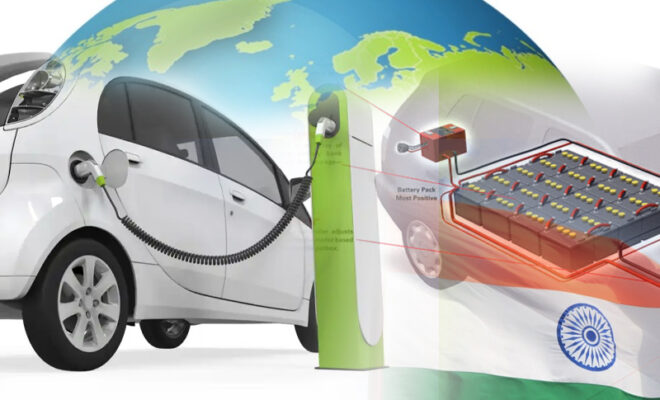World EV Day 2022: Make-in-India Push For Electric Battery & EVs

In the upcoming years, EVs are anticipated to be just as economical as fuel-powered ones thanks to a reported 73% decrease in the price of electric battery.
India is now getting backing from the general people and important stakeholders in its effort to speed up the adoption of electric vehicles. People are increasingly switching to electric automobiles slowly but gradually. The primary cause of this transition might be rising gasoline costs because having an electric car is economical and might result in significant financial savings. One of the primary causes of this shift is the increase in carbon emissions and environmental deterioration. India’s advancement in electric car technology is anticipated to reach its peak in the next ten years. Electric vehicles are predicted to be just as economical as gas-powered ones because battery costs have supposedly decreased by up to 73%.
Make-In-India Initiatives
By encouraging homegrown manufacture and opposing EV imports, the Indian government is seeking to support indigenous industry. Additional announcements from the Ministry of Heavy Industries and Public Enterprises include a 50% hike in incentives for electric two-wheelers, from ₹10,000 per kWh to ₹15,000 per kWh. This incentive cap will now be restricted to 40% of the whole price, up from 20% under the current regulations. Additionally, it has ordered Energy Efficiency Service Ltd (EESL) to buy 3 lakh electric three-wheelers for use in a variety of ways.
Cost of Electric Battery In India
These choices will help manufacturers cut the price of electric cars, making it possible for them to compete with and, in some cases, exceed petrol/diesel vehicles.
The FAME II stimulus programme has also helped the development of organized 3-wheeler EVs by bringing down the high sticker value of 3-wheelers with Li-ion batteries.
For a 6kWh–12kWh battery, the price gap between a lead-acid battery versus a more modern lithium-ion battery is often between ₹ 100,000 and ₹ 200,000. The FAME II incentives for lithium-ion battery electric vehicles, however, significantly minimize this pricing disparity.
Also Read: Why Is India Betting Big On Electric Vehicles?
2,636 Electric Vehicle Charging Stations
By 2025, the Indian government wants 30% of all vehicles on Indian roads to be electric. The essential infrastructure for charging is already being constructed.
As part of the second phase of the FAME India programme, the government has approved the construction of 2,636 electric car charging stations in 62 cities throughout 24 Indian states plus union territories.
Additionally, it gave developers the go-ahead to reserve 20% of parking spaces in all residential and commercial complexes for EVs, which will greatly allay the worries of EV owners on the availability of charging infrastructure.
Electric Vehicle Market Growth
In the upcoming years, the market for electric vehicles will surely expand. The Indian subcontinent could soon see one of the highest-earning businesses if the necessary infrastructure is built and EVs are made accessible and affordable to all consumer groups.



